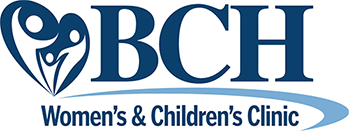BEHAVIORAL HEALTH
At Beatrice Women’s & Children’s Clinic, we have an on-site psychologist who works closely with our medical providers and other community professionals to provide comprehensive evaluation and treatment for a wide range of issues at home and school for children and teenagers, age 2 through age 19.
Common referral concerns include:
- Aggression
- Anger management
- Anxiety
- Attention Deficit Hyperactivity Disorder (ADHD)
- Autism
- Bedwetting
- Chronic pain
- Conduct disorder (e.g., lying, stealing)
- Depression
- Disruptive behavior
- Emotion-regulation difficulties
- Family transition issues
- Fears
- Feeding/mealtime concerns
- Hygiene
- Impulse-control difficulties
- Intellectual disabilities
- Medical treatment adherence
- Mild self-harm/poor coping
- Mood disorders
- Obsessions and compulsions
- Oppositional behavior
- Panic
- Parent-child conflicts
- Parent-teen communication difficulties
- Phobias
- School-related difficulties (academic and behavior)
- Sleep problems
- Social skills problems
- Stress management
- Tics and habits
- Toileting/soiling accidents
- Trauma
Who provides the services?
All clinical services are provided by the clinic’s licensed psychologist and certified school psychologist – Dr. Kim Hill. Dr. Hill received specialized training in behavioral pediatrics in integrated medical clinics. At times, Dr. Hill may be assisted by graduate-level therapists or “psychologists in training.”
What does a typical session look like?
The integrated behavioral health model involves a thorough evidence-based assessment and treatment process. In most cases, both the child and the parents attend all sessions. Prior to the first appointment, intake questionnaires and forms as well as previous mental health and school records are submitted for review.
At the first session, a careful assessment is conducted that involves a semi-structured clinical interview with parents, relevant questionnaires and observation of family interaction. This information is used to determine the nature of the issue and a potential course of treatment. From the onset of treatment, clear goals are developed in collaboration with the family to improve not only the functioning of the child but also the functioning of the child’s surrounding family and support system.
Therapy sessions are usually scheduled weekly or every other week. The number of therapy sessions depends on the nature and severity of the issue, but between five and 10 visits is common. The assessment and treatment process often involves consultation with relevant individuals who provide care for the child, such as teachers and psychiatrists.
The content of treatment sessions depends on the main concerns presented by the family. Dr. Hill uses an active, practical, brief and research-supported approach to treatment. This often includes skills training and practice in session, as well as problem-solving responses to behaviors that occur outside of session. Parents and children are typically given strategies to practice between office visits to improve behaviors and coping.
What support is available for parents and caregivers?
Parents are considered a vital part of therapy and are heavily involved in treatment recommendations. Depending on the main concerns presented by the family, much of the time in session may be spent problem-solving parent and caregiver responses to behavior.
What is the cost?
Behavioral health services are covered under the mental health portion of most insurance plans, including Medicaid. If you are not sure about coverage, contact your insurance carrier or the benefits office at your place of employment and ask about your coverage. Patients seen by our psychologist are registered as patients at Beatrice Community Hospital & Health Center and Beatrice Women’s & Children’s Clinic, which is responsible for all billing and record management.
How do I make an appointment?
If your child is having difficulty with any of these concerns, please discuss them with your child’s primary care provider. Your child’s provider will consult with our clinic and determine if a referral is appropriate. After receiving the referral from your child’s provider, our clinic will contact you to arrange for completion of intake paperwork and questionnaires as well as scheduling.
